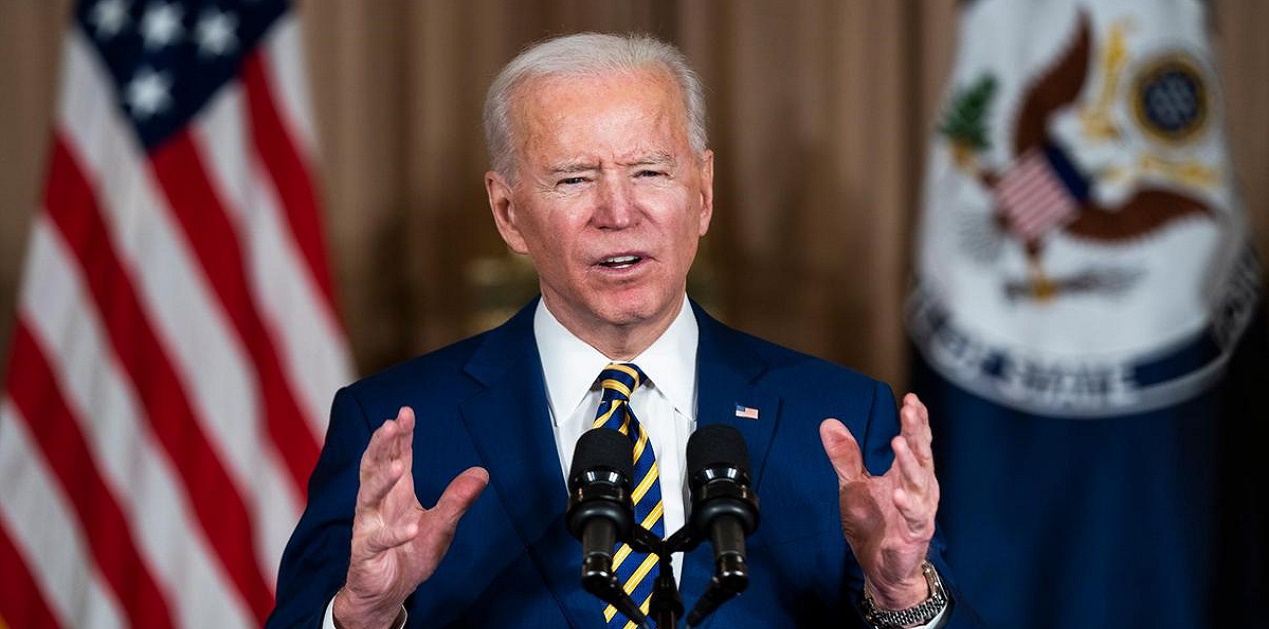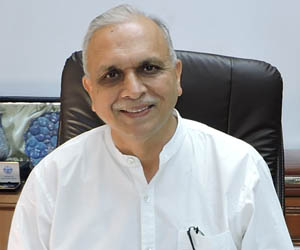President Biden’s 4th February speech1 at the State Department was designed to reassure Americans and signal to the world that “America is back” to resume the global leadership. Biden has emphasised re-engagement with the world with a strong emphasis on diplomacy. His attitude is just the opposite of Trump's “America First” approach which undermined America’s traditional alliances and put the US on a confrontationist course with its allies. Repairing the damaged alliances will be his top priority.
Biden’s speech laid out the framework of America’s engagement with the rest of the world. Under Biden, the US would defend democracy and re-engage with multilateral institutions. The foreign policy will be aimed at promoting human rights and protecting individual liberties. The liberal turn in US foreign policy is becoming evident.
Stemming the growing tide of authoritarianism, fighting climate change, championing equal rights, adopting more humane approach towards refugees, building economic strength, retaining America’s traditional edge in technology will be some of the priorities for American diplomacy.
Without mincing words, Biden identified the adversaries and competitors clearly– Russia and China. The speech was unusually harsh on Russia which was identified as a major adversary. Biden warned, “We will not hesitate to raise the cost on Russia and defend our vital interests and our people.”2
China was identified as competitor bent upon undermining America’s global supremacy by abusing global order and resorting to unethical practices. Biden declared, “We’ll confront China’s economic abuses; counter its aggressive, coercive action; ... push back on China’s attack on human rights, intellectual property, and global governance.”3
But engagement with adversaries is not ruled out. Biden made it clear that the US would engage with adversaries and competitors where it is in its interest. Notably, despite the chill in bilateral relations, the US and Russia have agreed to extend the term of the NEW START treaty by further five years.
Among friendly countries, Biden mentioned Canada, Mexico, UK, Germany, France, South Korea, Japan, Australia and Saudi Arabia. Surprisingly, Israel was left out. The Burmese military was singled out for trenchant criticism. North Korea, Afghnsantan, Indo-Pacific, and JCPOA were not mentioned. Biden made it clear that US foreign policy will focus on issues of climate change, refugees, LGBTQ rights, migrations, cybersecurity, among others.
Indicating a realist bent of mind, Biden said the Defence Secretary would carry out a review of global redeployment of US troops. In the meanwhile, the US troops would not be withdrawn from Germany. Afghanistan was not mentioned. It remains to be seen whether America would withdraw fully from Afghanistan as envisaged in the US agreement with the Taliban. Support for the war in Yemen would be stopped forthwith. Saudi Arabia will be supported against threats from Iran. The Indo-Pacific was not mentioned by name but neither was Asia Pacific. But Secretary of State Tony Blinken had spoken at length on this during his speech at the Senate hearing.
To regain its influence in the world, the US will return to multilateral institutions. Biden has already passed executive orders to bring the US back to the Paris climate change agreement as well as the WHO from where the US had been withdrawn. Pandemics and other health issues will be given high priority in foreign policy.
Biden was emphatic that foreign policy should serve domestic policy. Diplomacy should serve the interests of the middle classes. The intellectual property rights of American companies would be protected.
Democracy promotion will be the centrepiece of Biden foreign policy. He would convene a summit of democracies and a climate change summit in the coming months. The climate change summit would be used to compel other countries to be more ambitious on climate change commitments.
Biden is also cognizant of the fact that American businesses and companies have suffered at the hands of China. It remains to be seen how Biden will implement his foreign policy agenda at a time when China has made significant advances in enhancing its comprehensive national strength and is openly challenging the US supremacy in many areas.
There is little doubt that Biden is driven by the unshakeable belief in America’s supremacy in the world. His method may be different from his predecessors, but he is no different from most Americans who believe that America is destined to lead the world.
The allies would be happy to hear what Biden has to say. But the proof of the pudding lies in the eating. The allies’ faith in America has been shaken. They would be watching for practical and concrete measures that would strengthen the alliances.
The short speech was not meant to be a complete overview of Biden’s foreign policy. The administration will understandably review all aspects of the foreign policy before a comprehensive picture emerges. Therefore, one should not read too much in the absence of a mention of India by name in the speech.
It should be clear to India that it cannot take the existing state of Indo-US relations for granted. India would agree with Biden’s concerns about China although it has not expressed them openly. Indo-Pacific is now an important pillar of India’s foreign policy. India would be watching carefully how the US policy on Indo-Pacific evolves.
India and the US share democratic values, rule of law, human rights. We also have similar views on terrorism, radicalisation, multilateralism et cetera. Thus, there is a lot common between India and the US. We should build on these convergences. Yet, going by Biden’s various utterances, India should expect the US pressure on climate change, trade, and even domestic issues. We will have to ensure that the US does not interfere in India’s internal affairs.
Biden administration has not yet articulated its policy on Pakistan. Biden was instrumental in securing billions of dollars of military and financial aid to Pakistan under the Kerry-Lugar Bill introduced in July 2008 (passed as act in 2009). A grateful Pakistan conferred its highest civilian award Hilal-e-Pakistan on Biden in October 2008. Pakistanis are hoping that their relations will improve under Biden.
Biden’s direct and sharp criticism of Putin does not bode well for India which maintains a privileged strategic partnership with Russia.
Being a democracy, India should certainly take part in the summit of democracies. At the same time, democracy should not be used as a pretext to change regimes and interfere in the domestic affairs of other countries.
These are still early days. Biden administration is up to a good start. Most of the key appointments are in place. Tremendous importance is being given to the revival of diplomacy. A clearer picture of US foregin policy will emerge as the administration carries out foreign and defence policy reviews.
Biden is bringing idealism back to the US foreign policy. This is a complete reversal of Trump’s foreign policy which was based on transnationalism.
India will have to work hard to maintain the momentum in the Indo-US ties gained during Trump’s tenure. The scope and the quality of India’s diplomatic engagement with the US will need to be enhanced qualitatively. We have already seen oblique references in US statements to the farmers’ protests and internet restrictions in India. Even the Trump administration was uncomfortable with the civil restrictions in the wake of the Article 370 location.
Biden administration must be sensitised to Indian concerns early in its tenure. Biden has already appointed special envoys on specific issues. India would need to consider how to engage with the Biden administration intensively and effectively on a range of issues. India could also consider appointing special envoys on issues like climate change, West Asia, Afghanistan, the Indo-Pacific et cetera to increase its diplomatic engagement bandwidth.
Endnotes
(The paper is the author’s individual scholastic articulation. The author certifies that the article/paper is original in content, unpublished and it has not been submitted for publication/web upload elsewhere, and that the facts and figures quoted are duly referenced, as needed, and are believed to be correct). (The paper does not necessarily represent the organisational stance... More >>
Image Source: https://www.thenationalnews.com/image/policy:1.1160097:1612472628/USA-BIDEN-STATE-DEPARTMENT.jpg?f=16x9&w=1200&$p$f$w=cc496d0










Post new comment